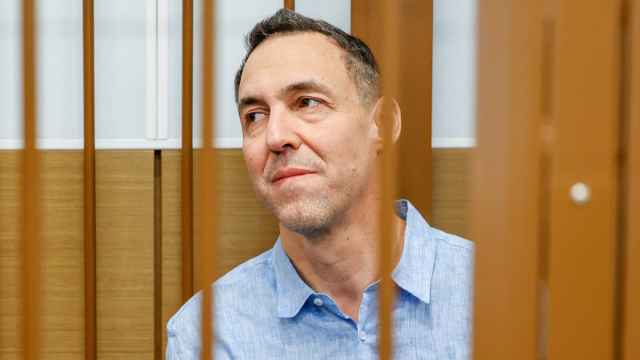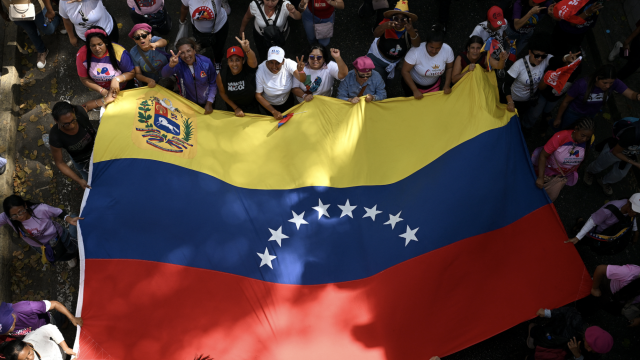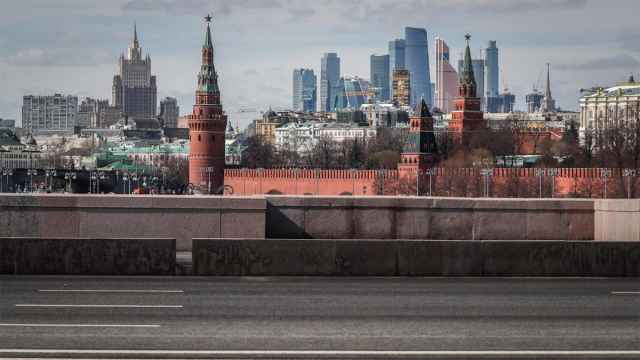Russia said Tuesday that its oil- and gas-dependent economy will stagnate over the next two years, increasing the pressure on President Vladimir Putin to fulfill pledges to expand and diversify the country's industry.
The Economic Development Ministry cut its 2013-15 gross domestic product growth forecast after months of data pointing to stagnant corporate investment as well as declining growth in consumer demand.
The revisions, a few weeks after Russia admitted for the first time that its economy would lag global growth over the next two decades, added ammunition to arguments that a new growth model is needed.
"Stagnation will definitely continue, with moments of recovery," Economy Minister Alexei Ulyukayev said, RIA Novosti reported.
Despite an average price of oil, the country's chief export, above $100 this year, Ulyukayev said GDP was likely to grow only by 1.4 percent, compared to an earlier forecast — itself reduced — of 1.8 percent.
The new forecasts envisage growth inching up to 2.5 percent next year and 2.8 percent in 2015, down from previous forecasts of 3 percent and 3.1 percent, respectively.
The ministry then expects growth to average 2.5 percent over the next two decades, very modest for an emerging market more used to growth rates above 6 percent in the previous decade.
"This is not an economic crisis, this is a crisis of an economic model," Andrei Makarov, head of the State Duma Budget and Taxes Committee, said in a recent parliamentary discussion.
The new forecasts are far below the 5 percent rate that President Vladimir Putin targeted before his return to the Kremlin last year, when he pledged to lift Russia into the world's top-five economies by the end of this decade, from around eighth at present.
Consumer demand and company investment have been the main drivers of growth since the 2008-09 debt crisis, with exports weighed down by the weakness of external markets.
Slower growth in income and in retail lending suggests that retail sales growth, which is a good barometer of consumer demand, will slow down.
However, it is moribund investment activity — money that firms put into infrastructure — that has been hurting the economy the most.
Investment has been stagnating since mid-2012. Now the Economic Developement Ministry envisages it growing just 0.2 percent this year, nowhere near its earlier forecast of 2.5 percent.
"Prevailing low investment sentiment can introduce capacity constraints that will ultimately transform into a lower potential GDP growth rate," Rosbank economist Yevgeny Koshelev said in a recent note.
A Message from The Moscow Times:
Dear readers,
We are facing unprecedented challenges. Russia's Prosecutor General's Office has designated The Moscow Times as an "undesirable" organization, criminalizing our work and putting our staff at risk of prosecution. This follows our earlier unjust labeling as a "foreign agent."
These actions are direct attempts to silence independent journalism in Russia. The authorities claim our work "discredits the decisions of the Russian leadership." We see things differently: we strive to provide accurate, unbiased reporting on Russia.
We, the journalists of The Moscow Times, refuse to be silenced. But to continue our work, we need your help.
Your support, no matter how small, makes a world of difference. If you can, please support us monthly starting from just $2. It's quick to set up, and every contribution makes a significant impact.
By supporting The Moscow Times, you're defending open, independent journalism in the face of repression. Thank you for standing with us.
Remind me later.





